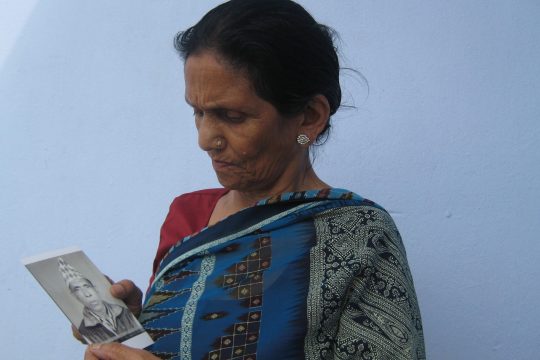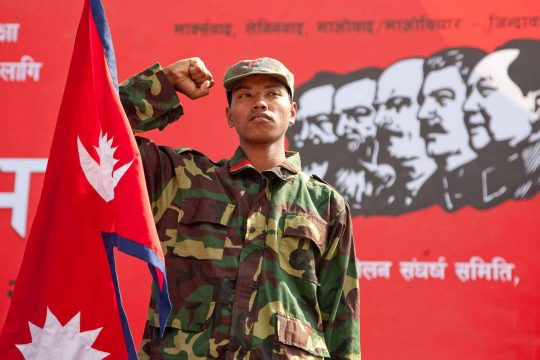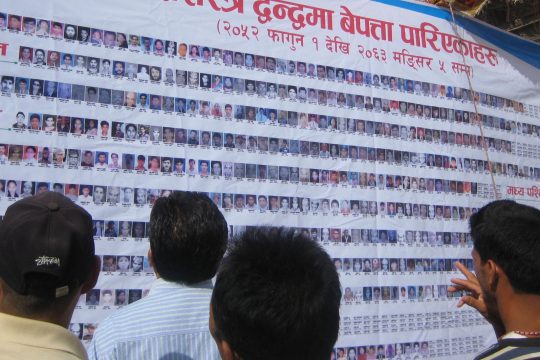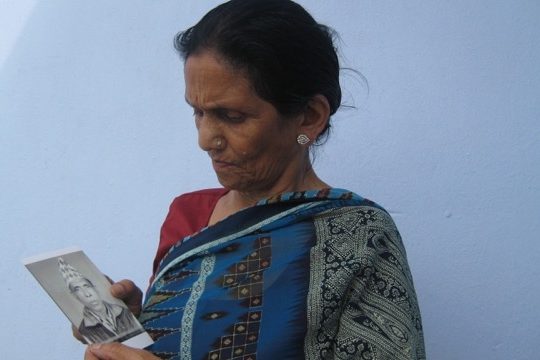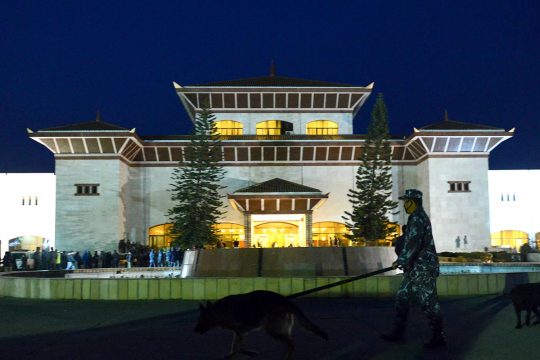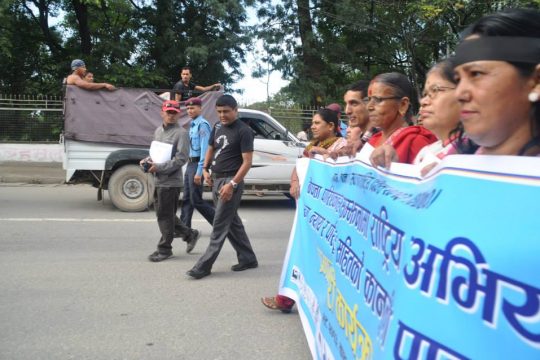A handful of faded photographs has long been Suntali Rasaili's only treasured momento of her teenage daughter, allegedly executed by Nepali soldiers at the height of the Maoist insurgency.
But a decade after Maoist rebels signed a peace pact, families of victims are also hoping for justice, as Nepal prepares this month to start investigations into crimes committed during the conflict.
Rasaili is among thousands filing complaints with two commissions, one of which is headed by a high-ranking judge and the other by a senior parliamentary official.
The commissions have a two-year term and were set up to probe murders, rapes, forced disappearances and other atrocities.
"I feel like I won't find any peace until I die... not unless I get justice for my daughter," Rasaili told AFP.
One night in February 2004, dozens of soldiers turned up at Rasaili's home, demanding to see her daughter Reena whom they suspected of being a Maoist.
Plucking the 17-year-old from her bed, the soldiers barred her parents from leaving the house, the family says. Hours later, three gunshots rang out across the isolated hamlet.
Reena's body was found slumped next to a tree and the soldiers were gone. She had been shot in the head, eye and chest, according to activists who took up the case.
"Reena enjoyed school, she used to say that once she finished her studies and got a job, she would take care of the family and look after us in our old age," Rasaili said.
"Her death tore apart our family. After that I never wanted to let any of my children out of my sight, I was scared they would never come back," she added.
More than 17,000 people were killed, 1,300 people disappeared and thousands were displaced during the decade-long war that ended in 2006.
The peace deal signed between Maoists and government forces included plans for a Truth and Reconciliation Commission and a Commission for Enforced Disappearances.
But Nepal only established the two bodies in 2015 after years of political infighting over how to bring justice to victims of abuses committed by both sides.
Activists say the delay reflects authorities' reluctance to find the perpetrators, many of whom still occupy positions in the military and political parties.
"Whether it's the Maoists or the police or the army, all the people involved in these crimes are on the same page," said Ram Kumar Bhandari, coordinator of the National Network of Families of the Disappeared and the Missing.
"They have come together to cover the truth and hide the truth."
- Amnesty concerns -
The commissions have already received some 27,000 complaints of abuse, and one of the commissions has extended this month's filing deadline because of the huge response.
But concerns have been raised about the safety of those willing to testify to investigators, because there is no protection programme for witnesses.
Local media recently reported that security forces had tried to gain details of complainants in western Nepal, prompting the army to issue a statement saying such attempts do not reflect official policy.
"We will support and cooperate with the commissions, there is no question of threatening anyone or trying to influence investigations," army spokesman Tara Bahadur Karki told AFP.
Rights groups are also alarmed after Nepal's ruling coalition, which includes the Maoists, agreed a deal allowing for alleged perpetrators identified by the commissions to be pardoned.
The legislation comes after the commissions, which can recommend prosecutions but not issue punishment, were given discretionary powers to grant amnesty in cases. Rights groups condemned that law as a move to protect perpetrators.
The Supreme Court, acting on petitions from victims challenging the powers, has repeatedly rejected amnesty, but the Maoists say it is critical to achieving peace.
"The most important question is reconciliation. In our society, we don't need to prosecute and punish anyone for the sake of revenge," Maoist leader Dinanath Sharma told AFP.
"When we talk about establishing peace in the world... amnesty is important, forgiveness is important."
- Fight for truth -
Since the conflict ended, Nepal's courts have issued several arrest warrants for alleged perpetrators, but only one case has resulted in convictions: that of five former rebels jailed in 2014 for murdering a journalist.
For those left behind, calls for forgiveness strike a hollow note.
"I am never going to find peace unless I know the truth about what happened," said Shobha Bhatta, whose husband disappeared at the hands of Maoist cadres in 2001.
Bhatta, now 39, was forced to raise two children alone while battling bouts of depression and without ever knowing what happened to her husband.
As Bhatta prepares to file a complaint with a commission, she said the prolonged wait had deepened her determination to find answers.
"I cried for a long time but you can't cry forever... I know I am not the only woman who lost a loved one," she told AFP.
"There are thousands of us and we will fight together until we know the truth."



